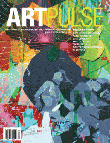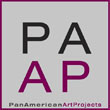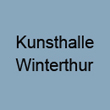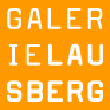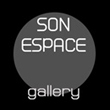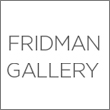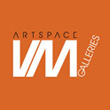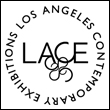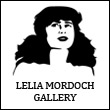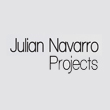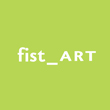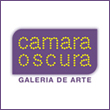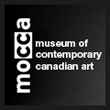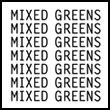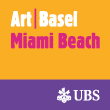« Dialogues for a New Millennium
Voina: A Russian Revolution

Voina Wanted action. Brooklyn, New York. January 5, 2012. Participating Voina Group activist: Brad Downey, Ed Zipco and Quenell Jones. Initiator of the action: Alexei Plutser-Sarno. Portrait of Oleg Vorotnikov at the courtroom by Vladimir Telegin. All photos are courtesy of Voina Group.
“Our concept is to screw the authorities till they fall. Voina screws them in an artistic position.“
Voina Group-”voina” means “war” in Russian-is a Russian multi-disciplinary artists’ collective whose actions and performances hover between art, activism and politics. The Russian state has filed several criminal charges against some of its members and has even sent out an international arrest order. This is an e-mail exchange with Natalia Sokol, Alexei Plutser-Sarno, Leonid Nikolayev and Oleg Vorotnikov, core members of the group, about contemporary Russia, activism, nihilism and VOINA WANTED.
BY PACO BARRAGÁN
Paco Barragán - In February 2011, Oleg Vorotnikov and Leonid Nikolayev were released from jail after three and a half months in captivity due to their participation in Palace Revolution action. In May 2011, the Russian Federal Security Service included Oleg and his wife Natalia Sokol on its international most wanted list. The first and mandatory question to start this interview is what is the current status of Voina leaders? How many Voina members are actually in jail? Can you give an approximate number of how many Voina members are active throughout Russia?
Alexei Plutser-Sarno - Russian cops started following and shadowing the Voina Group in summer 2010 after the action Dick Captured by KGB. At that moment there were more than 10 criminal cases filed against the group. But before cops didn’t succeed in arresting us and those criminal cases were left open. On November 15, 2010, cops got lucky in capturing both Oleg and Leonid at my Moscow flat. I was staying at my mother’s place not far from there, and I managed to escape before cops got there. For the last year there were over 10 new criminal cases brought against Voina activists. Oleg and Natalia were put on the federal wanted list first, then, an international alert was issued for them although they are still in St. Petersburg. What those stupid cops are going to do next is easy to imagine. Since they can’t get Oleg and Natalia now, they will probably put them on the ‘interplanetary’ and then to an ‘intergalactic wanted list.’
Leonid Nikolayev - At present there are several Voina activists who are being kept in prison, but we don’t unveil their names so they won’t get any additional charges for participating in our actions. I have to clarify that it was the Investigators Committee [the Russian version of the U.S.' FBI] that issued an alert for Oleg and Natalia. Unofficially, the Ministry of Home Affairs and the Federal Security Service are searching for many Voina activists, [to] arrest and shadow them.

Voina, Fuck for the Heir - Medvedev’s little Bear! / Pre-electoral “bang” at the State Museum, Moscow. February 29, 2008.
Oleg Vorotnikov - In our official criminal case it is specified that there are more than 3,000 activists. In reality there are much less of them. It’s hard to say how many though. We involve a dozen new activists for each action, but there are around 20 loyal ones who stay with us in the period between the actions.
Leonid Nikolayev - Most of Voina activists hide their names and faces. Only Oleg Vorotnikov, Natalia Sokol, Alexei Plutser-Sarno and I-core members of the group-act openly.
RADICAL ART ACTIVISM AND ANARCHISM
P.B. - According to Russia‘s Investigations Committee, “Art group Voina is a left-wing radical anarchist collective whose central goal is to carry out P.R. actions directed against the authorities, and specifically against law enforcement officials with the aim of discrediting them in the eyes of the public.“ Do you define yourself as a radical anarchist collective?
Natalia Sokol - There are many various activists in the group-anarchists, punks, socialists, libertarians.
Alexei Plutser-Sarno - But first and foremost we are radical art activists, revolutionary street art group, not a political movement, that’s why we don’t have a single political program. Our concept is to screw the authorities till they fall. We screw them in an artistic position. Our messages are metaphoric-they are not political statements. Our works are not P.R. actions, they are innovative protest art.
P.B. - In this sense, do you think that anarchism still has a strong utopian character able to challenge the world and make a new and better one? How can you apply it to actual totalitarian Russian society?
Oleg Vorotnikov - There are various movements in anarchism. But in general, all of them have a certain potential of solidarity, unity and courage in their fight against right-wing radical revanche that is taking place in the whole world.
Alexei Plutser-Sarno - An important thing is that corrupted politicians have to yield to force of anarchist protest. This kind of anarchism is still alive for me, because I proceed not from theories but from today’s practices of direct action. It seems that anarchists today are a real power, especially in comparison to infantile, cowardly and unprincipled ‘patriots.’
P.B. - In the West, utopias are totally outdated and even discredited by Neo-Capitalist propaganda. I guess on the one hand this is due to the historic failure of communism and socialism in its attempts to bring about a new society, which ended in a kind of gulags (Soviet Union, Cuba, China, Cambodia…), and on the other, the fact that most post-modern philosophers like Baudrillard, Lyotard and even Rancière are totally anti-utopian. How do you think we can and should rethink utopia?
Natalia Sokol - The world is full of utopias. But we are for direct action-like painting 65-meter-high-Dick on the drawbridge opposite of the FSB HQ (former KGB).
Alexei Plutser-Sarno - There is nothing impossible for art. It’s a symbolic weapon full of satire and laughter, which authorities are afraid of. Our art makes utopia real and destroys old patterns of thinking.
P.B. - Let‘s talk about art and activism. You stated that for Voina this is the only form of art possible. Are Soviet avant-garde artists like Mayakovsky, Malevich, Rodchenko and Tatlin an inspiration? I mean art before ‘socialist realism?’
Alexei Plutser-Sarno - I love Mayakovsky, but he never fought against the system of government, he supported it. He praised the regime. We, on the contrary, combine radical art innovations with protest against the current authorities. ‘Revolutionary’ artists of the 1920s were conformists. I am inspired by Dada and Tristan Tzara in particular, by Viennese Actionism and Rudolf Schwarzkogler, Hermann Nitsch.
P.B. - Theorist Nikolai Chuzhak envisioned the ‘construction of life‘ in his articles published in LEF between 1923 and 1929, arguing about the two opposing conceptions of art: the bourgeois conception in which art was a ‘method of acquiring a knowledge of life,‘ and the proletarian in which it was a ‘method of life-building.’ Like Chuzhak, is Voina‘s philosophy a ‘declaration of war on artistry?’
Alexei Plutser-Sarno - Approaching art with bourgeois and proletarian conceptions is outdated. You know, nowadays we can’t even define a notion [as] ‘human.’ The border between materialism and idealism is blurred. The world is real, but it is full of phantasm and illusions, many of which are harmful. The main goal of the revolutionary street art is to clean people’s minds of those injurious clichés of the past by means of art ‘weapons’-to mock [the] idiocy of today’s system.
P.B. - I think this distinction is pretty useful to understand art that includes a political agenda or engages politically but becomes part of the mainstream, part of the art system. It is trapped in the bourgeois conception, and its subversion has even become trendy. See for example Hans Haacke being collected in major private collections and museums. Is art and activism unavoidably trapped in Neo-Capitalism‘s narrative?
Oleg Vorotnikov - On principle, we don’t work with any curators, galleries and art institutions in Russian. We don’t sell our art. It’s available for everyone on the Internet.
Alexei Plutser-Sarno - Sooner or later our art will be absorbed by [the] art market, but as long as we are alive, we won’t let this happen.
RUSSIAN OLIGARCHY AND VOINA‘S ACTIONS
P.B. - It seems that Medvedev and his regime are returning to use contemporary art as a tool of propaganda with means to promote and export a cool and contemporary image of Russia. Can you comment on this situation?
Alexei Plutser-Sarno - It looks like an attempt to apply make-up on a face of the authorities’ dead body. Oligarchs and people in power need large art centers to launder money as well as for other foul machinations.
P.B. - Let‘s talk about Voina‘s actions and interventions. Much of these actions are in response to Russia‘s xenophobia and homophobia and the state‘s arbitrariness. For example, Palace Revolution and In Memory of the Decembrists, A Present to Yuri Luzhkov? Can you comment on this?
Alexei Plutser-Sarno - Palace Revolution is a brilliant idea of Oleg Vorotnikov. Basically, it’s an art installation made of overturned police cars and it symbolizes an overturn in minds of the people. This is how the Voina Group exterminates the Old World. This action symbolizes a triumph over the death and filthiness of state and police’s arbitrariness.
Oleg Vorotnikov - Decembrists Commemoration action is a parody remake of the execution of the first revolutionaries, which was held in 1826. By this action we wanted to revive the libertarian ideals of the past and to make them actual again in nowadays Russia.
Alexei Plutser-Sarno - The ‘dead men’ that were hung in the supermarket in broad daylight were our gift to the authorities that pursue the policy of executions and slavery in Russia. In that action we played the roles of executors mocking homophobia, xenophobia and anti-Semitism of people in power.
P.B. - Some of Voina‘s actions have an eschatological element. I‘m thinking, for example, of Fuck for the Heir-Medvedev`s Little Bear!, Dick Captured by KGB, Storm of White House with the skull and bones. In the sense of death and the end of history…
Alexei Plutser-Sarno - There is always a theme of death and copulation in our actions. Natalia and Oleg fired a laser projection of the 40-meters-high skull-and-crossbones laser onto the White House facade-it was a warning to the corrupted authorities that anarchy is an inevitable reaction to the politics of xenophobia and genocide. By the way, it was the biggest anarchy sign in the world. You could find the themes of death and sex not only in Voina’s actions, but also in many sources of the world culture, starting from Genesis and ending with Heidegger’s books.
Oleg Vorotnikov - Russia became unbearable to live in. The authorities kill people-just remember Sergei Magnitsky. Not long ago, cops planted drugs on political activist Taisia Osipova and sentenced her to 10 years in prison. There are thousands of political prisoners dying in cells.
P.B. - When I see all the fuss about Ai Weiwei in the West and the comparison with Voina (both in a former communist country and held under arrest), I feel there is a lot of manipulation as well a lot of ignorance in the art world. To me the difference is crystal clear, but would you care to share your point of view?
Alexei Plutser-Sarno - Oleg, Natalia and Leonid are honest and fearless. They risk their lives and freedom. They are waging a war with Mafioso authorities, which have much more power and opportunities than a small group of artists. And we are totally out of the art market. Ai Weiwei is better known; that’s why he gets more support.
P.B. - Peaceful protests like the Indignados in Spain and Occupy Wall Street in New York have had no visible results. Only the Arab Spring (where in many cases people died) has been successful in most of the countries, but even there in countries like Egypt the ‘ancient regime‘ is still in the driver‘s seat. So, basically I see that political art is condemned to fail if it‘s not connected to social and political activism. What is your opinion in this respect?
Oleg Vorotnikov - Of course, a contemporary artist should work in close cooperation with political and social activists. We collaborate with anarchists, Limonov’s Other Russia activists, human rights activists.
POWER AGAINST THE REGIME
P.B. - As you know very well, most dissidents and opponents of the regime have been jailed or silenced in Russia. This is happening to Voina as well. You said yourselves that today‘s opposition in Russia is VOINA WAR. Isn‘t that a nihilist attitude?
Alexei Plutser-Sarno - Yep. You are right.
Oleg Vorotnikov - Authorities don’t care about peaceful protests, rallies, pickets and demonstrations. They only understand the language of force.
Leonid Nikolayev - At present you should use power against brute authoritarian regime.
P.B. - In 2011, you started the VOINA WANTED action in reaction to Oleg‘s and Natalia‘s inclusion on the international wanted list. Can you talk about what this action consists of? How can other social activists around the world participate?
Alexei Plutser-Sarno - VOINA WANTED is a worldwide protest action against persecution of Voina members and repressions of political artists, and activists. To participate in this action, just write to me at a@plutser.ru. I’ll send an image, and you can paste it up in some significant place in your town.
P.B. - You were invited by Artur Żmijewski and the VII Berlin Biennale to participate as curators. Are you planning to participate? I suppose that this could be dangerous for Voina members who are wanted by Russian police, because they could be arrested by Interpol. If you participate, what do you have in mind to present at the Biennale?
Oleg Vorotnikov - During the arrest in November 2010, cops illegally confiscated our IDs. We can’t leave Russia.
P.B. - You are living an underground existence. Have you thought about the consequences if you get caught?
Alexei Plutser-Sarno - Yes, we have.
Oleg Vorotnikov - Prisoners know us well. They treat us with respect. So we are not afraid to get imprisoned again. Our lack of fear disarms authorities.




